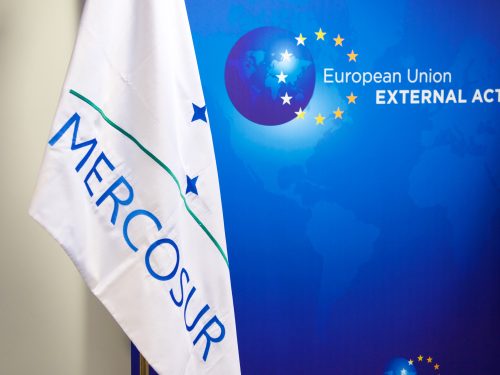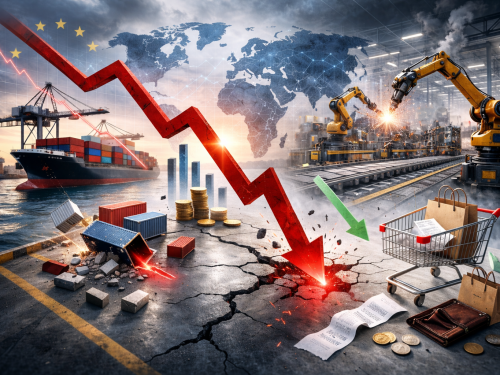News
Share on
'Draw on unused funds from the National Recovery Plan (NRP) and cohesion funds to incentivise companies affected by the US tariffs'. This is the proposal made to the government by the President of Confindustria, Emanuele Orsiniin an extensive interview with the Corriere della Sera.
"The risk of companies relocating to the US to avoid tariff barriers worries us, the duties can incentivise certain choices. I have been talking about this since my inaugural speech, before the duties arrived: it is logical for an entrepreneur to go where he finds it less complicated to work,' explained the President, even though 'our members are more burdened by the difficulties in Italy and Europe that we create for ourselves: bureaucracy, cost of energy, over-regulation. For the rest, there is still a lot of capacity in Italy to make unique products: moving to the US in many cases is simply impossible. Think of precision mechanics, fashion, agrifood, food, and others. I am convinced that we can make it by starting to reduce internal barriers'.
Orsini recalled the recent estimates presented by the Confindustria Study Centrethose of Italy's growth in 2025 went from 0.8% to 0.6%. The Bank of Italy has done the same'. According to the President, however, we will not end up in recession, because 'we have a very strong adaptive capacity, if Italy reacts and we do what is needed'. "We are coming from 24 months of falling productivity, to which is now added the uncertainty generated by the trade war. How does an entrepreneur invest like that? The first point, therefore, is for the government to present an extraordinary two-year industrial plan for investment where we say where we want to go,' so for the number one industrialist it is important to define how we safeguard products that work, how we ensure the transformation of mature companies that have difficulties dictated by the wrong regulations of the recent past, and how we open up new markets in Latin America, India, Africa.
On the proposals to be made to the government, the President said: 'I think a bit of a wake-up call is needed in Europe. L'European Union weighs 13.4% of the World GDP and for 7% of the emissions. Meanwhile, other major economies do not engage as we do and do not practice our corporate social responsibility. I am for the protection of the environment and my own company works hard on it. But on the electric car or green certificates, on which there has been financial speculation, it is clear that there is much to change'. 'No one is asking those who have invested to turn back, but,' Orsini wondered, 'how is it possible to leave all this uncertainty in Europe about fines for the electric car? So the investments don't come. So I think Europe must take a step back, it must be very quick in giving clear lines and suspend the green targets today. Time is up'.
For companies damaged by US duties, Spain has promised EUR 14 billion because it has less debt and is growing more than we are, 'but we have to do something similar so that our entrepreneurs have some certainty and start investing again,' the President emphasised. "By now it is understood that the Industry 5.0 (6.3 billion NRP incentives for investments in digital and the environment) is not working. It is pointless for us to keep pushing a measure that, if we are lucky, will absorb two billion in all. The Pnrr was designed to cut emissions, now the aim is to save industry European. So with the money left over from the NRP, as with the cohesion funds - and there are so many of them - we need the courage to focus on current priorities'.
A new investment incentive plan may be a solution, 'but not to the 5% or 10%. At least to 30%. And with simple tax credit mechanisms, without too much red tape, automatic. Otherwise, many small and medium-sized companies will not follow,' explained the President of Confindustria. "Italy may have the decisive vote in setting severe retaliation against American Big Tech, which may be triggered in a month or two if the negotiations fail. So far I have not seen any proposals. I think there is room for negotiation,' Orsini concluded, 'if you think about American supplies to Europe in energy or defence. These will still be indispensable to us for years to come, as are satellites and American software licences. On the tax issue of Big Tech, one can reflect. But I don't think a muscular negotiation makes much sense. There are two who have the most to lose in this game: Germany and Italy. Let's not forget that.




